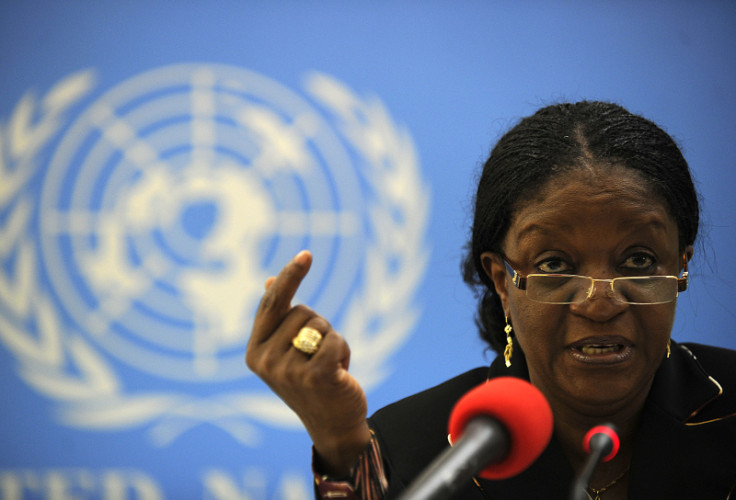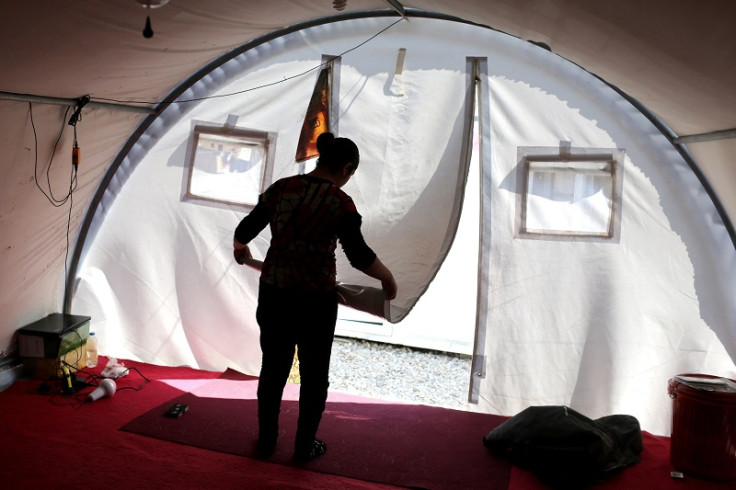Isis burns 20-year-old woman alive for refusing to take part in 'extreme sex act'

Members of Islamic State (Isis) burned a 20-year-old woman alive because she refused to engage in an "extreme sex act", according to a UN official.
Zainab Bangura, the United Nation's special representative on sexual violence in war, recently conducted a tour of refugee camps in the midst of the conflicts in Syria and Iraq.
Bagura was presented with appalling stories from victims of sexual crimes and their families and told of them in an interview in the Middle East Eye, an independent regional newspaper, this week.
"They [IS] commit rape, sexual slavery, forced prostitution and other acts of extreme brutality. We heard one case of a 20-year-old girl who was burned alive because she refused to perform an extreme sex act. We learned of many other sadistic sexual acts. We struggled to understand the mentality of people who commit such crimes," Bagura, said.
The terror group justifies the horrendous sex crimes and slavery as Sunnah – a way of life prescribed by Mohammed's life and the Quran's teachings.
While the Quran does detail rules for the ownership and ethical treatment of slaves, it also advises slave owners to free enslaved people, even if this required buying them first.
Islamic scholars have estimated Muhammad and his family released nearly 40,000 slaves.
Teenaged girls' virginity tested
Bangura outlined the processes by which the "pretty virgins" are kidnapped by the jihadists and they bought and sold at auctions.
"After attacking a village, [Islamic State] splits women from men and executes boys and men aged 14 and over. The women and mothers are separated; girls are stripped naked, tested for virginity and examined for breast size and prettiness. The youngest, and those considered the prettiest virgins fetch higher prices and are sent to Raqqa, the IS stronghold," Bagura, said.
She later goes on to explain that there is a hierarchy system: sheikhs (rulers) get the first choice, then emirs (commanders) followed by fighters. But they are not content with just one woman and often take three or four girls and keep them for around a month, until they send the girls back into the market and replace them.
At slave auctions, buyers bargain heavily, pushing prices down by criticising girls as "flat-chested or unattractive".
"We heard about one girl who was traded 22 times, and another, who had escaped, told us that the sheikh who had captured her wrote his name on the back of her hand to show that she was his 'property'," Bagura added.
There are believed to be somewhere between 3,000-5,000 women enslaved by IS. Many are Yazidi, a minority that IS considers to be "devil-worshippers."
Hundreds of Yazidi women have escaped the clutches of their evil kidnappers, either by running free or being ransomed and rescued by beloved families. Buying a daughter back costs as much as $5,000 (£3,230). Bangura has asked international assistance in helping proper medical and "psychosocial" support to the escaped women, who have experienced this ordeal.

Some of these women are so desperate to escape they use their headscarves to hang themselves. Due to this IS has banned women from wearing headscarves in some regions.
"I learned of three girls who tried to commit suicide by drinking rat poison, which had been left in a room. They started vomiting and were rushed to hospital and washed out. When they came back, they were brutally attacked," Bangura told Middle East Eye.
Women are promised to IS fighters as a recruitment measure and the terror group raise money through trafficking, prostitution and ransoms.
IS has carried out "systematic sexual crimes" against Yazidi women and girls, having captured hundreds of them from northern Iraq over the last two years, Human Rights Watch has said.
In early April, more than 200 Yazidi women, children and elderly were released near Kirkuk after being taken hostage by IS last June.
© Copyright IBTimes 2025. All rights reserved.





















